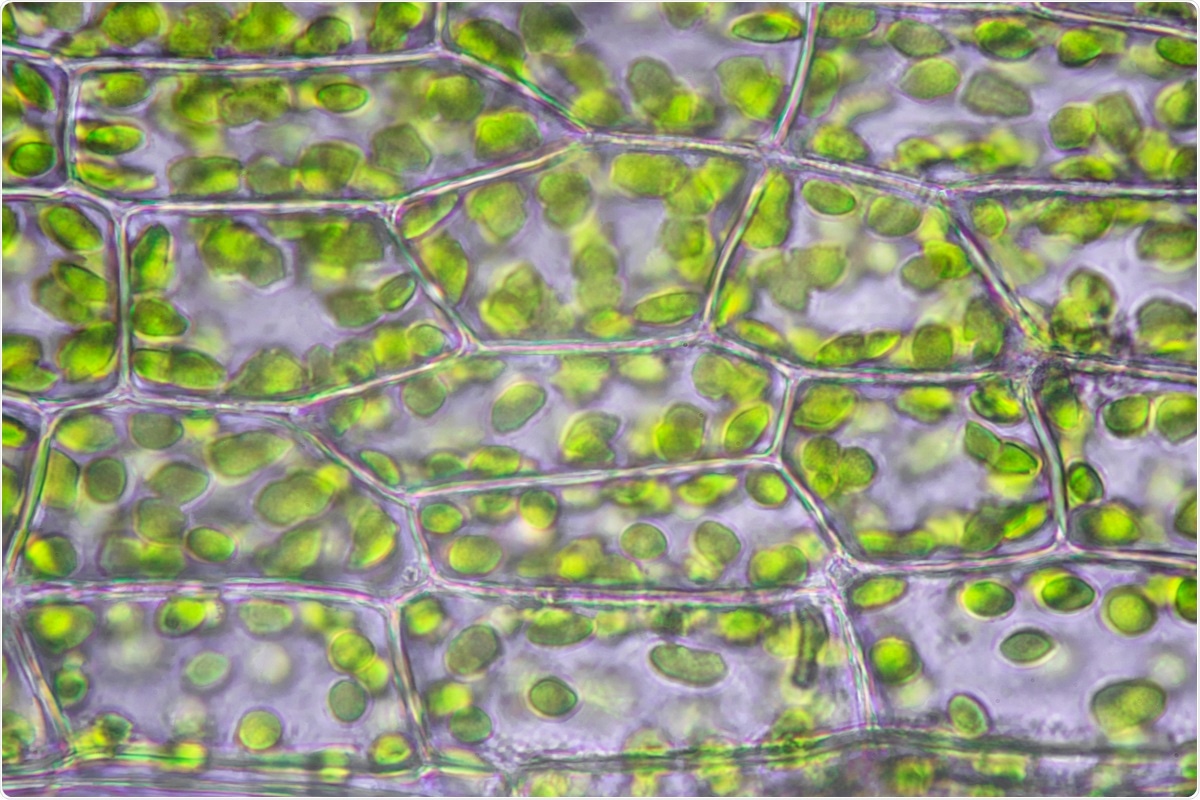Reviewed by Danielle Ellis, B.Sc.Sep 17 2021
A recent study by the University of Oxford provides insight into plant chloroplasts, and the proteins inside them. The regulation of chloroplast proteins is crucial for stress acclimation plant development and is highly important as plants—including the staple crops, rice, wheat, barley—have to respond to the varying environments.
 Image Credit: Pasotteo/Shutterstock.com
Image Credit: Pasotteo/Shutterstock.com
The study was published in the eLife journal.
As the planet warms, it will be increasingly urgent to understand the molecular basis of plant stress tolerance. This study has uncovered another layer of complexity within the systems that plants use to control their chloroplasts.”
Paul Jarvis, Professor, University of Oxford
It is evaluated that “stressed” crops—from varying weather patterns, flooding, extreme temperature, and drought—might lower production by as much as 70%, which is supposed to have an annihilating effect on the capability to provide the world with food.
Improved crop varieties must be developed—plants with improved nutritional value or adaptability to adverse environments—and for such a development, it is important to understand the molecular basis of plant stress tolerance.
Green plants convert light energy into chemical energy through a mechanism called photosynthesis, a process vital for their growth. Photosynthesis takes place within specialized compartments of plant cells called chloroplasts.
Chloroplasts demand thousands of various proteins to function, imported into the chloroplast through specialized machinery called the TOC complex. This TOC complex is made of proteins.
Current research works showed that the TOC complex is quickly annihilated when plants experience environmental stress. This safeguards the plant cells from damage by restricting photosynthesis, which can create toxic by-products under adverse conditions. This process is called CHLORAD, for “chloroplast-associated protein degradation”.
In CHLORAD, the TOC complex is initially marked with a small protein named ubiquitin. This “ubiquitination” facilitates the destruction of the complex and thereby inhibits photosynthesis, chloroplast protein import, and the formation of toxic by-products.
In this research, scientists debated if the TOC complex is also SUMOylated—SUMO is a small tag similar to ubiquitin—and, if so, what was the function of TOC SUMOylation. The scientists discovered that the TOC complex is indeed SUMOylated and that TOC SUMOylation induces the annihilation of the TOC complex and is vital for plant growth and development.
These observations are fascinating, as they show that SUMO action resembles that of CHLORAD, in this context.
Indeed, the resemblance to CHLORAD indicates that SUMOylation governs the activity of the CHLORAD pathway. This is specifically intriguing, as SUMOylation is known to be induced by different forms of environmental stress and is a major factor of plant stress acclimation.
It was remarkable when the role for ubiquitination, and CHLORAD, was discovered a few years ago, and this new role for SUMO just adds to the intrigue.”
Paul Jarvis, Professor, University of Oxford
Based on these observations, the scientists are at present investigating how the CHLORAD pathway can be manipulated to enhance crop performance. Thorough knowledge of the CHLORAD pathway and/or the regulation of chloroplast protein import put forth as a result of the observations reported is anticipated to help guide these efforts.
Source:
Journal reference:
Watson, S., et al. (2021) Crosstalk between the chloroplast protein import and SUMO systems revealed through genetic and molecular investigation in Arabidopsis. eLife. doi.org/10.7554/eLife.60960.